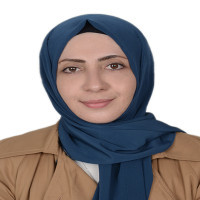Research Article
Book Review
Issue Editorial Board
1976 yılında Ankara’da doğdu. 1999’da Marmara Üniversitesi İlahiyat Fakültesi’nden mezun oldu. Marmara Üniversitesi Sosyal Bilimler Enstitüsü’nde “Hanefî Usûlcülerinin Elfâz Taksimindeki Metodları” başlıklı teziyle yüksek lisansını (2001), aynı enstitüde “Usûlü’l-Fıkh’ın Mahiyeti ve Gayesi” başlıklı teziyle doktorasını tamamladı (2007). Yayıncılık ve İslâmî ilimlere dair eğitim faaliyetleriyle meşgul oldu. 2012 yılında İstanbul 29 Mayıs Üniversitesi’nde öğretim üyesi olarak göreve başladı. 2014 yılında doçent, 2019 yılında profesör unvanını aldı. 2019 yılından bu yana Marmara Üniversitesi İlahiyat Fakültesi'nde görev yapmaktadır. Akademik ilgi alanları fıkıh usulü, İslâm hukuku ve hukuk tarihi, ahlâk, hukuk ve siyaset felsefesi üzerinde yoğunlaşmaktadır. Telif kitapları şunlardır: Fıkıh Usûlünün Mahiyeti ve Gayesi (2008), Fıkıh ve Siyaset: Osmanlılarda Siyâset-i Şer’iyye (2016), Elmalılı M. Hamdi Yazır (2017), Lutfi Paşa (2017), İlim Semasında Bir Yıldız: Mustafa Âsım Köksal (2018), Osmanlı Anayasasına Dair (2018 / kısmî telif).
Yayına hazırladığı bazı eserler:
Elmalılı Muhammed Hamdi Yazır, Hak Dini Kur'an Dili (tahkikli neşir, Murat Kaya ile birlikte, 2021-2023)
Mehmed Akif Ersoy, Kur'an Meali (Recep Şentürk ile birlikte, 2012/2024)
Ahmet Cevdet Paşa, Kur'an-ı Kerim Meali (Murat Kaya ile birlikte, 2024)
Elmalılı M. Hamdi Yazır, Meşrutiyetten Cumhuriyete Makaleler (Murat Kaya ile birlikte, 2011)
Mustafa Asım Köksal'ın külliyatı
Köksal'ın ayrıca tercümeleri ve makaleleri bulunmaktadır.

She was born in 1998 in Midyat, Mardin. She completed her secondary education at Midyat Anatolian High School in 2016 and graduated from Marmara University Faculty of Theology (Arabic Program) in 2021. In 2024, she completed her master’s thesis entitled “Mamluk Madrasas in Cairo” at the Department of Islamic History and Arts, Institute of Social Sciences, Marmara University. Between 2021 and 2023, she worked at the Encyclopedia Coordination Office of the Center for Islamic Studies (İSAM). In 2023, she was appointed as a research assistant at the Department of Islamic History and Arts, Faculty of Theology, Süleyman Demirel University. Since February 2025, she has been pursuing her doctoral studies at the same department.
Aim & Scope
The journal publishes original research articles that contribute toward Islamic thought and culture principally within the fields of Islamic studies, politics, history, economy, philosophy, sociology, anthropology, history of religions, literature and culture; the journal also publishes research notes, review articles and book reviews as well as symposium reviews and obituaries.
Islamic Sciences, Social Sciences and Humanities
Author Guidelines
Articles should be drafted according to the Centre for Islamic Studies (ISAM)’s style of orthography and bibliography.
Click here for the citation guideline for articles in Turkish.
Click here for the citation guideline for articles in English.
Click here for ISAM’s principles for critical editions.
Ethical Principles and Publication Policy
PUBLICATION ETHICS
İslam Araştırmaları Dergisi meticulously complies with research and publication ethics. The journal has adopted the ethical principles of academic publishing as stated in the open-access guidelines of the Committee on Publication Ethics (COPE): https://publicationethics.org/guidance/Guidelines.
Author
A submitted article should not be published elsewhere and should not include any plagiarism or copyright infringements. The author signs a declaration of originality at the time of submission. The author’s statement is confirmed by ISAM using a special plagiarism program. If a copyright infringement is detected at any stage of review, the process is immediately ceased and the article is returned to its owner. The author is not permitted to submit an article that has been submitted to İslam Araştırmaları Dergisi to any other journal prior to the completion of the reviewing process.
Editor
The editor is responsible for examining submitted articles for both originality and coherence with the publication policies and the format of İslam Araştırmaları Dergisi, and then for proceeding with the process of publication. The editor also coordinates the refereeing and other processes for each article. The editor is responsible for maintaining neutrality and for protecting the anonymity of both the author and the other individuals involved in the reviewing process.
Referee
The referee examines the article free from prejudice and subjectivity, and guided by academic writing criteria and a respect for copyright. Articles are reviewed in respect to scientific quality, consistency, usage of terminology, language, style, and harmony between the title and content. The referee is expected to use clear sentences and to substantiate arguments.
Editorial Board
The editorial board is the committee which determines publication policies for İslam Araştırmaları Dergisi. All members except for those with justified excuses participate in board meetings and deliver opinions via e-mail when necessary. The editorial board decides to approve or reject submitted articles based on referees’ reviews and authors’ responses. The editorial board also decides in which issue an approved article is placed.
Advisory Board
The advisory board oversees the general direction of the journal and offers guidance related to publication policies. Advisory board members can express their ideas in writing or they may participate in a meeting when called for by the chief editor.
PUBLICATION POLICY
As a journal with the mission of contributing high-quality academic material, spreading academic knowledge and making it accessible to all parts of the society, İslam Araştırmaları Dergisi maintains an open-access policy. All materials published in the journal are accessible, free of charge, through the journal’s website. All materials can be downloaded without a membership or payment. No fee is expected from authors for any reason.
Price Policy
Dergimizde makale gönderim ücreti alınmamaktadır.





